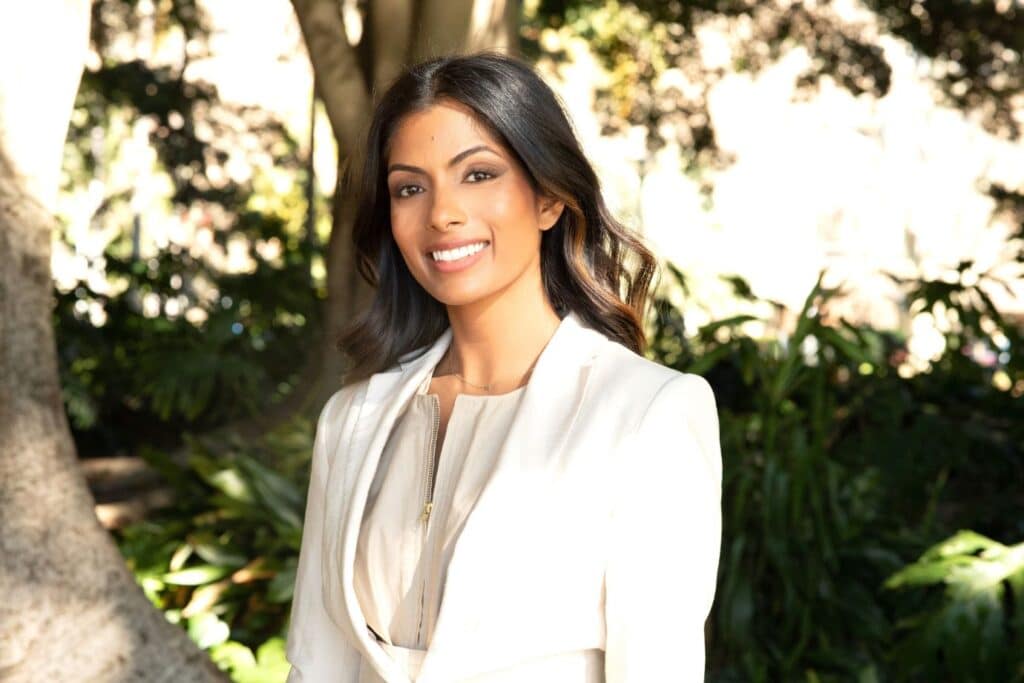I woke up Good Friday morning with the intention of turning off my computer to go bike riding with my seven-year-old son.
But that ended when I heard the news of yet another example of racism towards children in this country.
So here I am back at my computer, imploring parents to use this opportunity to speak with children about racism.
The news came via footage courageously shared by Eddie Betts of four children being racially abused while playing basketball. I felt like a kick in the stomach, but sadly unsurprisingly to a mother of a brown son.
The video is representative of what countless black and brown children encounter far too often.
Discussions about skin colour started early in our home. At three, my son told me that he wanted ‘normal’ skin. When I asked him what normal skin was, he said ‘white skin’.
At five, he was on the receiving end of a racist comment by another child, aged 3. Not a single day goes by where I do not think of this incident and feel a sense of failure.
I know as parents we all share a common vision for our children to live in a society that values equality, diversity and non-discrimination. And as parents we all share a common bond in the unconditional love and devotion we have to our children.
Nelson Mandela famously wrote: ‘No one is born hating another person because of the colour of his skin, or his background, or his religion. People must learn to hate, and if they can learn to hate, they can be taught to love…’
Children are not born with prejudices. Studies suggest that children as young as three can show signs of racial bias and, by four, white children can show a preference for white faces. Children are sponges, they absorb their social environment, and this includes biases exhibited by adults in their life.
The American Paediatric Society has described racism as ‘a socially transmitted disease passed down through generations’.
I genuinely believe that parents want to raise socially aware, empathetic, inclusive children who are anti-racist. We have all heard the phrase –‘it is not enough to not be racist, you must be anti-racist.’
So what does that mean for parents?
1. Acknowledge that racism exists in our society
Before you can have meaningful discussions with your children about racism, it is important to acknowledge that white Australia has a black history and racist community attitudes still exist towards minority groups in 2024.
While overt racism may be harder for us to easily spot in our local communities – casual racism is particularly rife. These are the off-handed comments and jokes that involve negative prejudices and stereotypes about people on the basis of their race. The ‘it’s just a joke mate’ mentality only fuels systemic racism and division in society.
2. Talk and talk early
There is a cultural expectation in Australia that race, as with religion and politics, is a topic we avoid in conversation. To my mind, this is why many well-meaning white families adopt a colour-blind approach where discussions of race, culture and ethnicity are avoided to demonstrate that race doesn’t matter.
However, research studies demonstrate that ‘kids develop racial prejudices unless their parents or teachers directly engage them about it’. A psychologist has described that by not actively talking to your children about racial differences a vacuum of information can form ‘which leads children to absorb biases around them – often in ways that are counter to parents’ own held values’.
Some parents adopt a ‘let kids be kids’ mentality and are reluctant to have discussions about race, particularly with younger kids. However, with research clearly demonstrating that racial biases start as young as three, it is never too early to commence age-appropriate conversations. For pre-school children, it can be as simple as pointing out that people have all different skin colours and emphasise how wonderful this is.
3. Normalise diversity and inclusion
Did you know that Australia is the most ethnically diverse country in the world, with 26 per cent of the population born overseas? How reflective are your social groups of Australia’s rich cultural diversity?
A great way to normalise diversity and cultivate respect is to socialise with people from different racial backgrounds and support your children to diversify their friendship circles.
Also, it is important to be intentional about what your child absorbs through toys, books, and TV shows and ensure they are representative of society and not reinforcing negative stereotypes.
When racism is historically and deeply woven into the fabric of society, it won’t be resolved overnight. However, as parents we can do our part to provide our children the best chance to cure this social disease for their generation and generations.
To guide your discussions, the following resources may also be useful:
How to talk to young kids about race and racism. ABC
Talking about race. National Geographic


